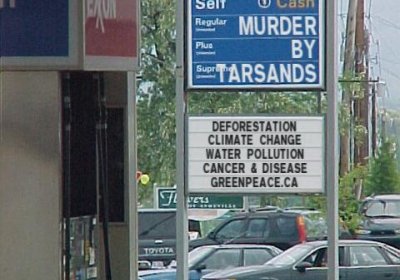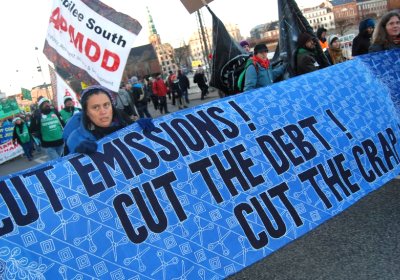NASA climate scientist James Hansen has called them “factories of death”. British columnist George Monbiot has said “everything now hinges” on stopping them. US climate writer Bill McKibben is prepared to be arrested to have them shut down.
But Australian state governments don’t get it — they are still enchanted by coal-fired power stations.
Climate campaigners say Australia should urgently replace existing coal-fired power plants with renewable energy, but 12 new “death factories” are slated to be built in Australia over the next few years.
Environment
Sand mining on Stradbroke Island, offshore from Brisbane, will be phased out by 2027, under a new plan announced by the Queensland state government on June 20. Most of the island will become national park and development of ecotourism will be the main industry.
British Petroleum (BP) has admitted it may not stop the Deepwater Horizon oil spill in the Gulf of Mexico until August — at the earliest. But despite the catastrophe, the US government’s Minerals Management Service (MMS) has given BP new leases for deepwater drilling.
The MMS has rubber-stamped 198 new deepwater drilling leases in the gulf since the BP spill began on April 20. It awarded BP 13 of these.
The tar sands mining project in Alberta, Canada, is possibly the largest industrial project in human history and critics claim it could also be the most destructive.
The mining procedure for extracting oil from a region referred to as the "tar sands," located north of Edmonton, releases at least three times the CO2 emissions of regular oil production procedures and will likely become North America's single largest industrial contributor to climate change.
Multinational oil companies in Nigeria spill more oil every year than has been spilled by BP in the Gulf of Mexico. Unlike the gulf disaster, most people are unaware of this ecological crime.
There have been major spills in Nigeria since BP’s Deepwater Horizon rig exploded on April 20, but they have received hardly any attention from the international media.
A May 12 explosion at a Shell installation turned 39 hectares of the Niger Delta into an oil slick, BBC News said on June 15.
Two weeks earlier, an Exxon Mobil oil pipeline ruptured. It spewed a million litres a day for a week.
On June 11 at the close of climate talks in Bonn, Germany, UN climate chief Yvo de Boer tried to put a positive spin on the outcome. “This all in all is a big step forward making much more possible in Cancun”, he said, referring to the next big climate conference that takes place in Mexico in November.
However, big step or not, the conference outcomes kept the world sprinting headlong towards a climate catastrophe.
Large mining companies enjoyed a huge profit margin of 46.1% in 2008/9, according to figures released by the Australian Bureau of Statistics (ABS) on May 28. The mining sector as a whole has a profit margin of 37.1%, making it the most profitable sector in the economy, with professional and scientific services second (24.6%) and private health care third (21.5%).
Kiama Municipal Council will sign an open letter to the NSW government calling for no new coal-fired power stations.
Greenpeace, who initiated the letter campaign, says the NSW government plans to approve two new coal power stations in Lithgow and the Hunter Valley. If built, they would spew over 20 million tonnes of greenhouse pollution into the atmosphere each year.
Kiama Deputy Mayor, and Greens candidate for Gilmore, Ben van der Wijngaart moved the resolution, which was carried only after Mayor Sandra McCarthy, an independent, used her casting vote in favour.
Traditional owners of Muckaty Station in the Northern Territory have launched a federal court challenge over a proposed nuclear waste dump on their land.
A small group of traditional owners signed a deal for $12 million in exchange for roads, housing and infrastructure, but senior elders from all five of the clan groups for Muckaty maintain that they did not consent to the waste dump proposal.
Muckaty Voices is a 10-minute video documentary that tells the story of the Muckaty traditional owners opposed to a radioactive waste dump on their country.
Traditional Owner Dianne Stokes said: “We made the video throughout the Warlmanpa land. It is all of the Milwayi story. Along with that, we have some songs and dances to represent the country.
“Martin Ferguson has avoided us and ignored our letters, but he knows very well how we feel. He has been arrogant and secretive and he thinks he has gotten away with his plan, but in fact he has a big fight on his hands.”
Attempts by Tahmoor mineworkers to negotiate with mining giant Xstrata have collapsed yet again after the company refused to budge during mediated talks in May. For 20 months, the Construction, Forestry, Mining, Energy Union (CFMEU), has been trying to negotiate an agreement.
Protests will take place across the country on July 17 to demand the federal and Victorian state governments close down Australia’s dirtiest power station and replace it with clean energy by 2012.
The call for a national day of action was issued by groups active in the “Replace Hazelwood” campaign, including Melbourne’s Climate Action Centre and Environment Victoria.
The call has been endorsed by the Community Climate Network, which brings together more than 100 climate action groups nationwide.
- Previous page
- Page 288
- Next page







